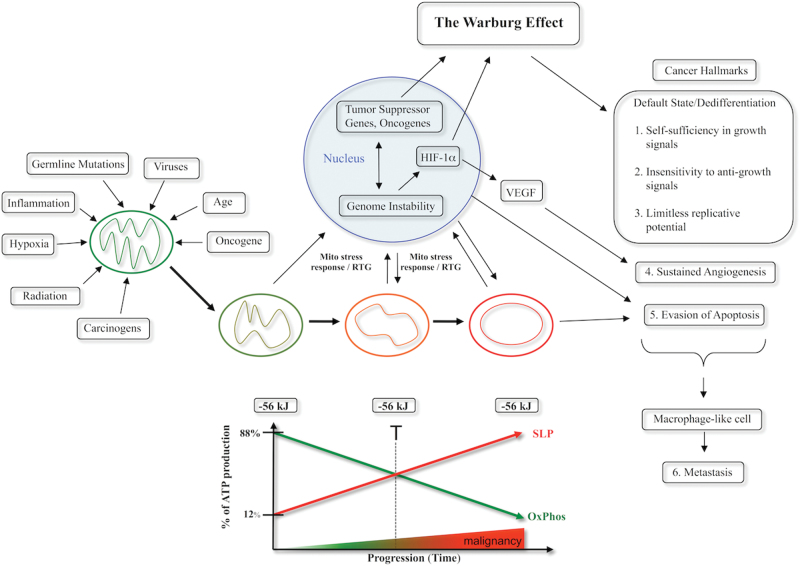Fig. 3.
Mitochondrial respiratory dysfunction as the origin of cancer. Cancer can arise from any number of non-specific events that damage the respiratory capacity of cells over time. The path to carcinogenesis will occur only in those cells capable of enhancing energy production through fermentation (substrate level phosphorylation, SLP). Despite the shift from respiration to SLP the ΔG′ of ATP hydrolysis remains fairly constant at approximately −56 kJ indicating that the energy from SLP compensates for the reduced energy from OxPhos. The mitochondrial stress response or retrograde signaling will initiate oncogene upregulation and tumor suppressor gene inactivation that are necessary to maintain viability of incipient cancer cells when respiration becomes unable to maintain energy homeostasis. Genomic instability will arise as a secondary consequence of protracted mitochondrial stress from disturbances in the intracellular and extracellular microenvironment. Metastasis arises from respiratory damage in cells of myeloid/macrophage origin (146). The degree of malignancy is linked directly to the energy transition from OxPhos to SLP. This scenario links all major cancer hallmarks to an extrachromosomal respiratory dysfunction (141). The T signifies an arbitrary threshold when the shift from OxPhos to SLP might become irreversible. Reprinted with modifications from (17).

